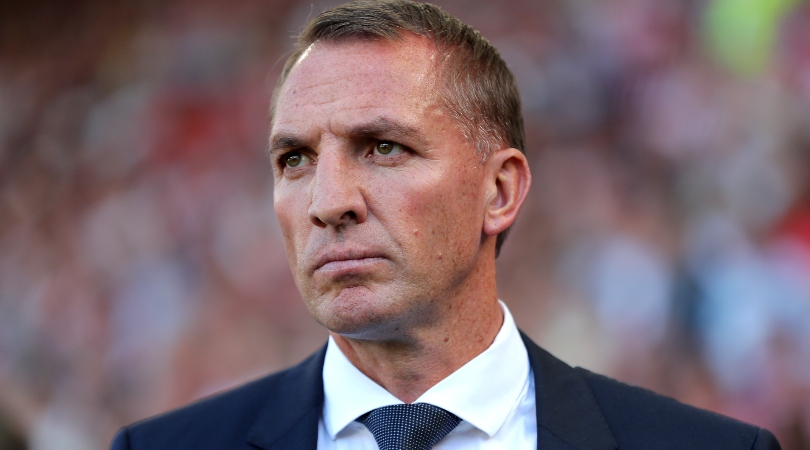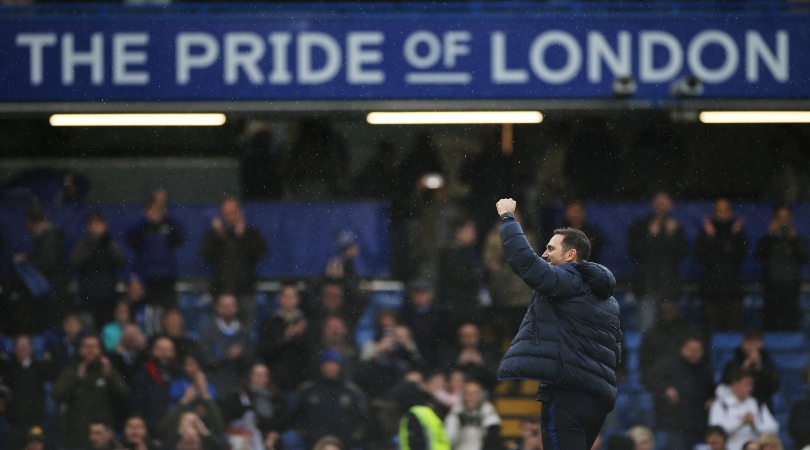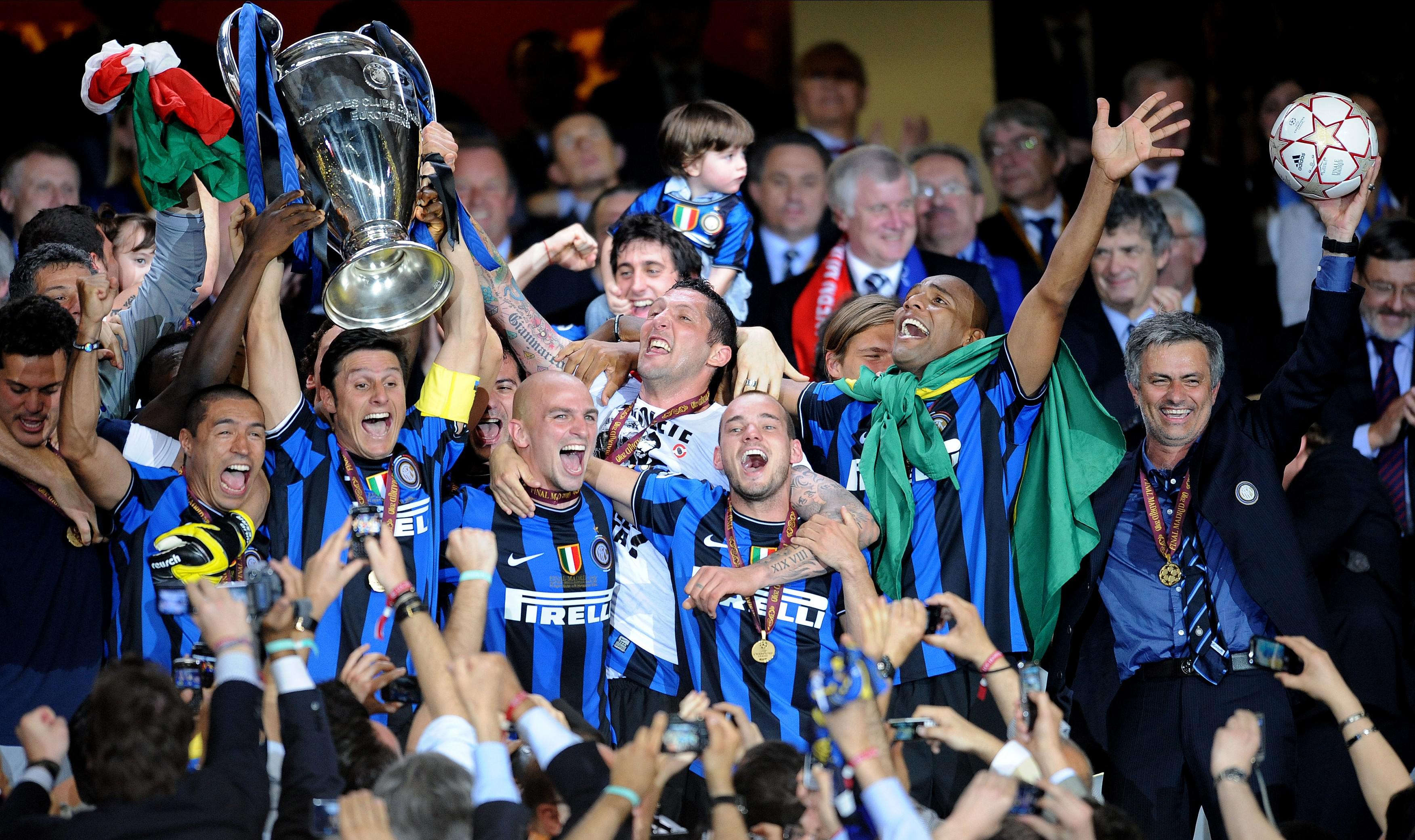Leicester are acting like a big club without the entitlement – and that's perfect for Brendan Rodgers
Signing a new long-term contract despite interest from Arsenal shows that Rodgers has learned the right lessons from Liverpool and Celtic

Brendan Rodgers’ eagerness to sign a new contract with Leicester City provided a timely endorsement of some pertinent theory.
In the end, it wouldn’t have been a difficult decision. Rodgers had informally interested both Arsenal and Tottenham in light of their recent vacancies, but chose instead to extend at the King Power Stadium until 2025. A smart move given how Leicester are performing, but also a reminder that the best job, from a coaching perspective, is always the one which best aligns with the individual's ability, belief and personality.
Rodgers’ success isn’t such a surprise. When he made the decision to leave Celtic, it was with good cause. The King Power was already home to a prolific goalscorer, a fully-fitted midfield and arguably the best full-back tandem away from Anfield. Throw in a veteran, Premier League-winning goalkeeper and a fast-improving centre-back combination and, as new jobs go, it couldn't really have been any more welcoming.
But if ever this was true, it was in this instance: that group of players – collectively – were the perfect components from which to build a Brendan Rodgers team. It was so obvious: the artisan qualities, the technical strengths – the squad’s characteristics could have been purposefully assembled specifically to an enact his vision for how the game should be played.
The end result, of course, is that Rodgers’ stock has never been higher in English football. Whatever doubts accumulated as a result of Liverpool’s famous collapse, they’ve all been eradicated within less than a year. It’s been a tremendous comeback. It’s also occurred in the right place.
There’s no avoiding this issue: Rodgers has caused himself difficulties in the past. His personality's type and idiosyncrasies have been magnified in unflattering ways, often because of the size of the club employing him. He evidently found the atmosphere at Liverpool a little too intoxicating and some of the stranger anecdotes from the time suggests that to have been the case at Celtic, too.
Contrastingly, one of the great advantages of Leicester, is that they behave like a big club in the competitive sense, but without drawing the media’s attention in the same way. There isn’t the emphasis on history and the figures of the past don’t stalk the corridors as they do at Anfield or at Celtic Park. There is no mythology to buy into, nothing to get drunk on.
Get FourFourTwo Newsletter
The best features, fun and footballing quizzes, straight to your inbox every week.
What that helps to depict is a set of truisms around managerial appointments. Too often, clubs look to alter their state by importing values held by a particular head coach. They want identity, so they hire an ideologue. They want to play to a certain style of football, so they throw money at the relevant high priest.
The real currency is compatibility, though - the kind which can be felt from the first day. By determining what potential synergies exist prior, a club can minimise the variables which it will have to entertain in the aftermath. If a coach has a method of working or style of play which suits existing players, that reduces future dependency on the transfer market. If that coach's personality or position in the sport’s hierarchy is roughly comparable to the club’s own place, the possibility of a future clash is greatly reduced. They would both be headed in roughly the same direction, broadly with the same aims. It isn't a guarantee of success, but it's solid basis from which to begin.
Because, ultimately, these are human relationships. Claude Puel had plenty of technical virtues as a coach, but why assemble a young, largely British squad of millennial players around someone who's biggest issue was communication? Conversely, it was easy to imagine Rodgers enthralling James Maddison, Harvey Barnes and Ben Chilwell and, as a result, the chances of them responding to him in a coherent, positive way were much higher.
That's an idealised and simplified portrayal of management – clearly – but it still presents something which more clubs should be aiming for. Rather than lungeing towards a name or a reputation and then using that identity as the basis for revinvention, the target should really be for a series of co-dependencies. Not appointments which comes with a to-do list and the need to spend another £300m, but where certain conditions are already in place.
Essentially: buy the house you want to live in, not the one which maybe... possibly... could... be nice with a bit of work. That, in the abstract sense, is the principle Leicester and Brendan Rodgers respected and it's also why their rise together has not only been so rapid, but has also looked so easy.
While you're here, why not take advantage of our brilliant subscribers' offer? Get the game's greatest stories and best journalism direct to your door for only £9.50 every quarter. Cheers!
NOW READ...
LIST 18 of the best football books of 2019
QUIZ Can you name every team in the First Divison the last time Liverpool won the league (1989/90)?
GUIDE Premier League live stream best VPN: how to watch every game from anywhere in the world
Seb Stafford-Bloor is a football writer at Tifo Football and member of the Football Writers' Association. He was formerly a regularly columnist for the FourFourTwo website, covering all aspects of the game, including tactical analysis, reaction pieces, longer-term trends and critiquing the increasingly shady business of football's financial side and authorities' decision-making.

